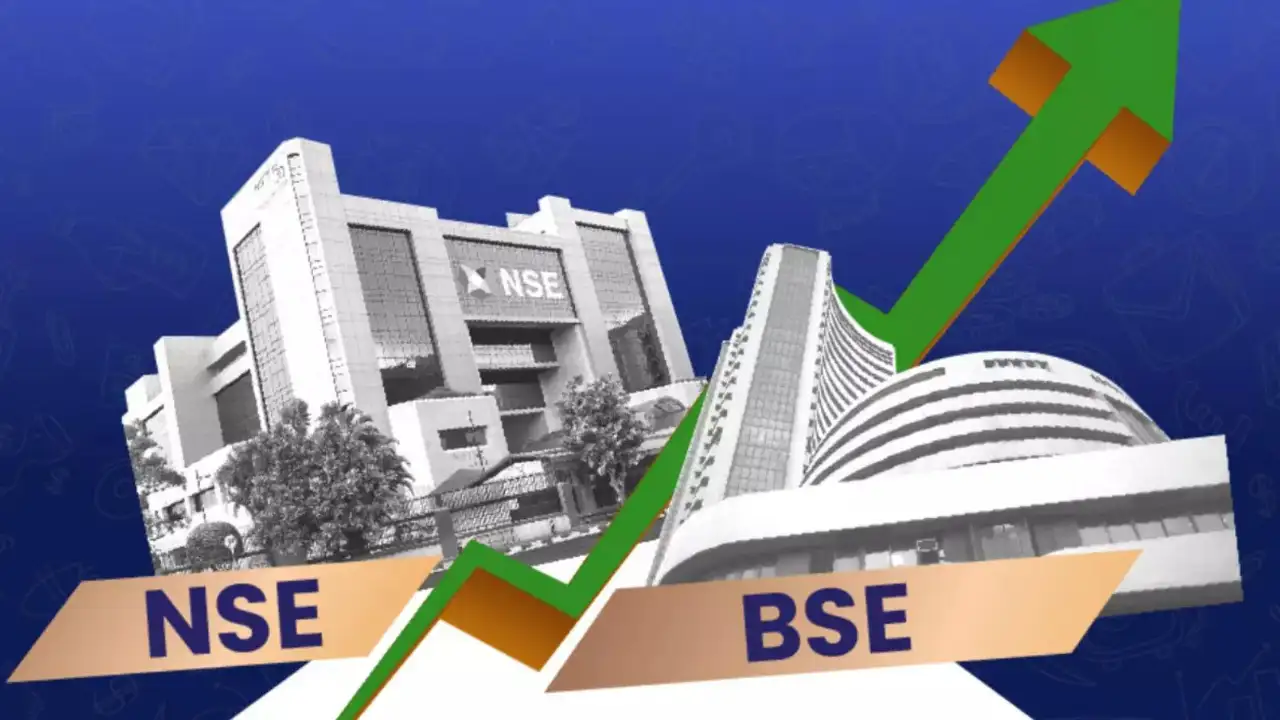INSUBCONTINENT EXCLUSIVE:
BSE and NSE shareholders have collectively lost Rs 1.4 lakh crore in market capitalisation since last month as the Jane Street scandal,
ongoing regulatory cleanup of the F&O mess, plunging derivatives turnover, and analyst downgrades have triggered a sell-off
The carnage has pushed BSE shares deep into bear territory while NSE teeters dangerously close to the 20% decline threshold.The bloodbath
accelerated after SEBI's bombshell July 3 order barring US quant trading firm Jane Street from Indian markets, freezing Rs 4,840 crore of
assets over allegations the firm ran "an intentional, well-planned and sinister scheme" to manipulate Nifty Bank
The fallout was immediate and brutal, with derivatives turnover collapsing and brokerages rushing to downgrade exchange stocks amid fears of
further regulatory tightening.BSE shares have plummeted 22% from their June 10 peak of Rs 3,030 to Rs 2,376, wiping out Rs 26,600 crore in
NSE has lost Rs 1.15 lakh crore, with shares down 18% from their June 21 high of Rs 2,590 to Rs 2,125, according to data from WWIPL, which
deals in unlisted shares.Market analysts have now begun to downgrade exchange stocks
IIFL Capital downgraded BSE to ADD, citing near-term volume headwinds
"The current uncertainty in the market (ban on Jane Street + possible scrutiny on other players + risk of more regulations amid rising
retail losses) would weigh on near-term Exchange volumes," the brokerage said.Also Read | Jane Street aftermath: 4 stocks suffer Rs 12,000
crore wipeout in collateral damage
Live EventsLast month, Motilal Oswal had also downgraded BSE to neutral while citing concerns over a
potential market share loss following the shift in weekly contract expiries."BSE has declined around 22% from the record peak, and last
fortnight's sustained downtrend has given the feeling that the stock has entered a full fledged bear trend," said Anand James, Chief Market
Strategist at Geojit Investments Limited.The immediate impact of the Jane Street ban was stark
On the first expiry of Nifty weekly contracts since the prohibition, total turnover on NSE dropped 21% compared to the previous expiry day
Index options turnover on a notional basis slipped to Rs 472.5 trillion, down from Rs 601 trillion on July 3
Total premium turnover on NSE hit its lowest level since mid-March for an expiry day, with turnover about 40% lower than this year's
average.BSE's Option Premium ADTO in the first 8 trading sessions of July plunged 25% to Rs 105 billion versus June average
IIFL Capital cut its volume assumption by 6-8%, leading to a 3-5% EPS cut over FY26-28, on top of a 4-5% EPS cut done in June 2025.The
timing couldn't be more damaging for exchange investors, coming as fresh SEBI data reveals Indian retail traders suffered a crushing Rs 1.05
lakh crore loss in derivatives trading during FY25 alone.The regulatory assault comes as retail traders' misery deepened dramatically
Individual derivative traders surged from 86.3 lakh in FY24 to 96 lakh in FY25, but their losses multiplied
Average losses per person jumped from Rs 86,728 in FY24 to Rs 1,10,069 in FY25, a devastating 27% increase.SEBI's May 26 landmark circular
mandating changes in expiry days for equity derivatives contracts has added to the pressure
The regulator specified that exchanges must limit expiry days to just Tuesdays or Thursdays, ending the expiry-day ping-pong between
NSE shifted its equity derivatives expiry from Thursday to Tuesday effective September 1, 2025, while BSE moved to Thursday from its
previous Tuesday slot.Also Read | Explained: What is Jane Street and how it made Rs 36,500 crore profit by gaming Dalal StreetThe broader
market Option Premium ADTO tumbled 19% month-on-month to Rs 510 billion in July, down 28% versus first quarter FY26
Low volatility, with India VIX averaging 12 in July versus 14 month-on-month and 16 in first quarter FY26, contributed to the volume
reduction."We believe weakness in volume can sustain in short term due to recent regulatory changes (ban on Jane Street + other members may
also be under scrutiny)," IIFL Capital noted, highlighting that volumes through colocation servers, extensively used by high-frequency
traders, account for 55-60% of derivative volumes.The regulatory measures implemented in November 2024 to cool the derivatives frenzy are
SEBI's report covering December 2024 to May 2025 shows index options turnover down 9% year-on-year in premium terms and 29% in notional
Individual turnover in premium terms declined 11% year-on-year, with the number of unique individual traders down 20% compared to the
previous year.Jefferies estimates Jane Street's contribution to BSE at around 1% of turnover, suggesting limited direct impact on earnings
"A 100bps impact on our FY26 premium estimates would impact EPS by ~60-70bps," the brokerage said.However, the September expiry swap is
expected to deliver another blow
IIFL Capital estimates BSE will lose 10-12% of its volume when it moves its expiry from Tuesday to Thursday
On revised estimates, the brokerage values BSE at 45x (versus 50x earlier) and ascribes a fair value of Rs 2,200, implying 11% downside."We
downgrade the stock to ADD given near-term uncertainty, which would weigh on both earnings and valuations," IIFL Capital said, though it
maintained a positive bias from long-term horizon given potential for 15-20% earnings upgrade.The exchange sector's woes reflect broader
concerns about regulatory tightening
With increasing retail losses in F&O trading, further measures by SEBI to curtail option volumes remain a possibility.For now, market
participants are bracing for more pain as the derivatives market cleanup continues, with exchange shareholders bearing the brunt of the
regulatory reckoning.(Disclaimer: Recommendations, suggestions, views and opinions given by the experts are their own
These do not represent the views of TheIndianSubcontinent)

